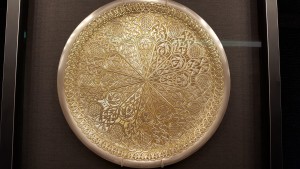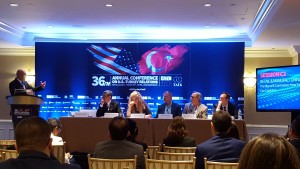“How does conflict make you feel when working internationally?” is a good question to ask yourself. Then, how do you react to conflict? Do you tend to avoid it, address it on the spot, do you welcome it while wondering how this feels for the other?
Conflict often takes a big toll on business. This week, the news about how the Seattle business community reacted to the City Council’s new head tax traveled quickly around the world. There were probably articles about many other similar incidents, too. And how about the ones in your very own office, with your colleagues, board members, business partners, vendors, clients…
Additionally, doing business internationally takes the probability and complexity of conflict to a different level. Cultural, structural and geographic differences can add many new dimensions to conflict.
We were thrilled that Howard G. Beasey, the President and CEO of the American Turkish Council (ATC) was able to contribute to the Culture Curious Global Minds blog this week.
It is great to be able to elaborate on the importance of diplomacy skills when wanting to succeed in international business based on Mr. Beasey’s extensive experience in the U.S. – Turkey commercial relationship. There are surely many differences between the U.S. and Turkish markets. Yet the bilateral history is full of mutual journeys and business partnerships. We hope that this interview is a resource to those who work and want to work in this commercial space:
How do you see conflicts turn into opportunities in your efforts facilitating trade and investment between the United States and Turkey?
HB: When it comes to trade and investment it is important to remember that for a healthy bilateral relationship the trade must flow both ways. The duality of prosperous trade relations creates a great deal of room for compromise and fertile ground for win/win opportunities if one is willing to look for them.
What skills have you found most helpful when addressing conflicts?
HB: The willingness and mental agility to accept the fact that business norms and cultures can and will differ and that these differences should not be viewed as good or bad but simply as the reality. The sooner a person can come to this mindset the faster they will then be able to react and navigate the path for a successful outcome. Too often we get caught up in the difference itself and cannot move past this to find a way forward.
What life experiences do you find were/are critical to fulfilling the diplomacy and relationship building requirements in your job today?
HB: I have had a number of interesting experiences in my career that have helped me to be more or less successful in building and maintaining professional cross-cultural relations. For starters I have always espoused a “yes” mentality. In other words, one must start with the notion that yes is the answer and let’s figure out how to make this happen. We have all met the individual who starts with “no” and then must be convinced that something can be done, who already starts from a deficit. Additionally, I think that the experience of working in a multi-language environment over the years is helpful. When you are working in these types of environments with or without interpreters you tend to use simple, concise, and direct language when communicating and secondly you will take time to listen and ensure you are understanding the subject or discussion before responding. This professional patience and careful listening pays big dividends in this setting or frankly, any meaningful relationship.
If interested in learning more about the nuances of doing business between the United States and Turkey consider signing up for “Work with a Global Mindset on the U.S. – Turkey Commercial Highway” to learn applicable leadership, management and communications models and engage in a Q & A session.
Unlocking the Global Mindset Energy Well: How often do you celebrate accomplishments? Celebrating the 12th Issue of StrategicStraits Weekly today – published in twelve consecutive weeks! Please use link if you would like this Newsletter conveniently delivered to your inbox every week.


